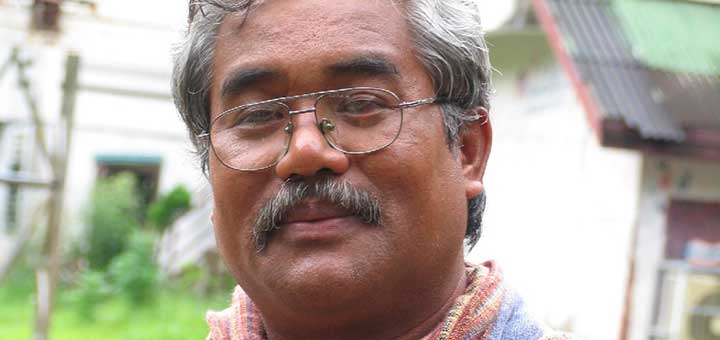“If you can protect one child, you protect future generations.”
Sompop Jantraka has dedicated his life to rescuing children in Southeast Asia from sexual trafficking and exploitation. He has built a center that provides shelter, education, and a future for vulnerable girls, and has spurred attention to a regional system of sexual slavery in which children born into poverty are trapped in trafficking networks and, cut off from families, suffer dangerous abuse.
Sompop Jantraka was born in 1957 in southern Thailand. His family was destitute. As a child, he carried alms bowls for monks and, at times lived by his wits in the streets. He collected garbage and dug wells and graves to help support his family and occasionally was able to go to school. When he was a young teenager, a chance meeting changed Jantraka’s life. A Peace Corps volunteer visited his school and saw his potential. With her encouragement, he rapidly made up lost ground in his classes, improved the English he had gleaned in the street, and became determined to enroll at Chiang Mai University. Working full-time, he graduated with a degree in political science and international studies.
Working as a researcher with the International Labor Organization, Jantraka became a street sociologist and social worker, seeking to uncover the hidden structures of Thailand’s prostitution industry. He saw that thousands of young girls from Thailand’s countryside, many from impoverished minority communities, were being coerced into prostitution. Agents of brothel owners operate networks that reach into rural areas. Families facing extreme poverty see no alternative but to sell a daughter who, ostensibly, will work as a housemaid in Bangkok or Thailand’s other cities but ends up trapped in the sex trade. These networks operate across national borders, ensnaring children who often belong to minority communities facing poverty and discrimination. Young girls, without documentation or education, are particularly vulnerable and find themselves trapped and isolated—escape is nearly impossible.
Jantraka became determined to take action. In 1989, he founded an organization to prevent vulnerable girls from being forced into the sex industry by funding their education as an alternative for their families. By 1993, his initiative had grown into the Development Education Program for Daughters and Communities (DEPDC), a community-based NGO located in the northern Thailand town of Mae Sai, near the Burmese border. Working with a network of volunteers that Jantraka has assembled, DEPDC has become a hub for preventing the exploitation of child labor, the trafficking of women and children, and the provision of rights to children in one of the world’s most vulnerable regions. Its volunteers intervene with families to provide vulnerable girls shelter and free education to keep them free from the sex trade. DEPDC’s three centers have helped over 4,000 children, providing girls with education and vocational skills, assistance in finding jobs, or scholarships for higher education. DEPDC provides counseling services, a legal aid center, and human rights training.
In 1994, Sompop Jantraka was named a Hero of the Year by Time/Asia. In 2013 he received the World Children’s Prize.

